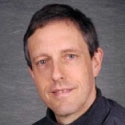Introduction to Argo

Professor
University of North Carolina
University of North Carolina
Dr. Bingham received his Ph.D. from the University of California, San Diego in Oceanography. His research interests include global distributions of sea surface salinity and large scale regional physical oceanography in the Kuroshio, the western North and Equatorial Pacific, and Onslow Bay, North Carolina.
Webinar Clip
The Argo program has been in place since the late 1990s and is now a worldwide network of profiling floats, thousands of which reside in each of the major world's oceans. These autonomous floats move throughout the water column, collecting temperature and salinity data and transmitting that information to a satellite which is monitored at the Argo Information Centre in Toulouse, France. In this video, Dr. Bingham explains how an Argo profiling float works and how these floats were used during SPURS (Salinity Processes in the Upper Ocean Regional Study). Full webinar: Follow that Salt! Results and the Future of Salinity Exploration
Click here for a transcript of this clip (PDF, 44.6 KB). |
Resources
Applicable Science Standards
 Planning and Carrying Out Investigations. Scientists and engineers plan and carry out investigations in the field or laboratory, working collaboratively as well as individually. Their investigations are systematic and require clarifying what counts as data and identifying variables or parameters.
Planning and Carrying Out Investigations. Scientists and engineers plan and carry out investigations in the field or laboratory, working collaboratively as well as individually. Their investigations are systematic and require clarifying what counts as data and identifying variables or parameters. Constructing Explanations and Designing Solutions. The goal of science is the construction of theories that provide explanatory accounts of the world. A theory becomes accepted when it has multiple lines of empirical evidence and greater explanatory power of phenomena than previous theories.
Constructing Explanations and Designing Solutions. The goal of science is the construction of theories that provide explanatory accounts of the world. A theory becomes accepted when it has multiple lines of empirical evidence and greater explanatory power of phenomena than previous theories.